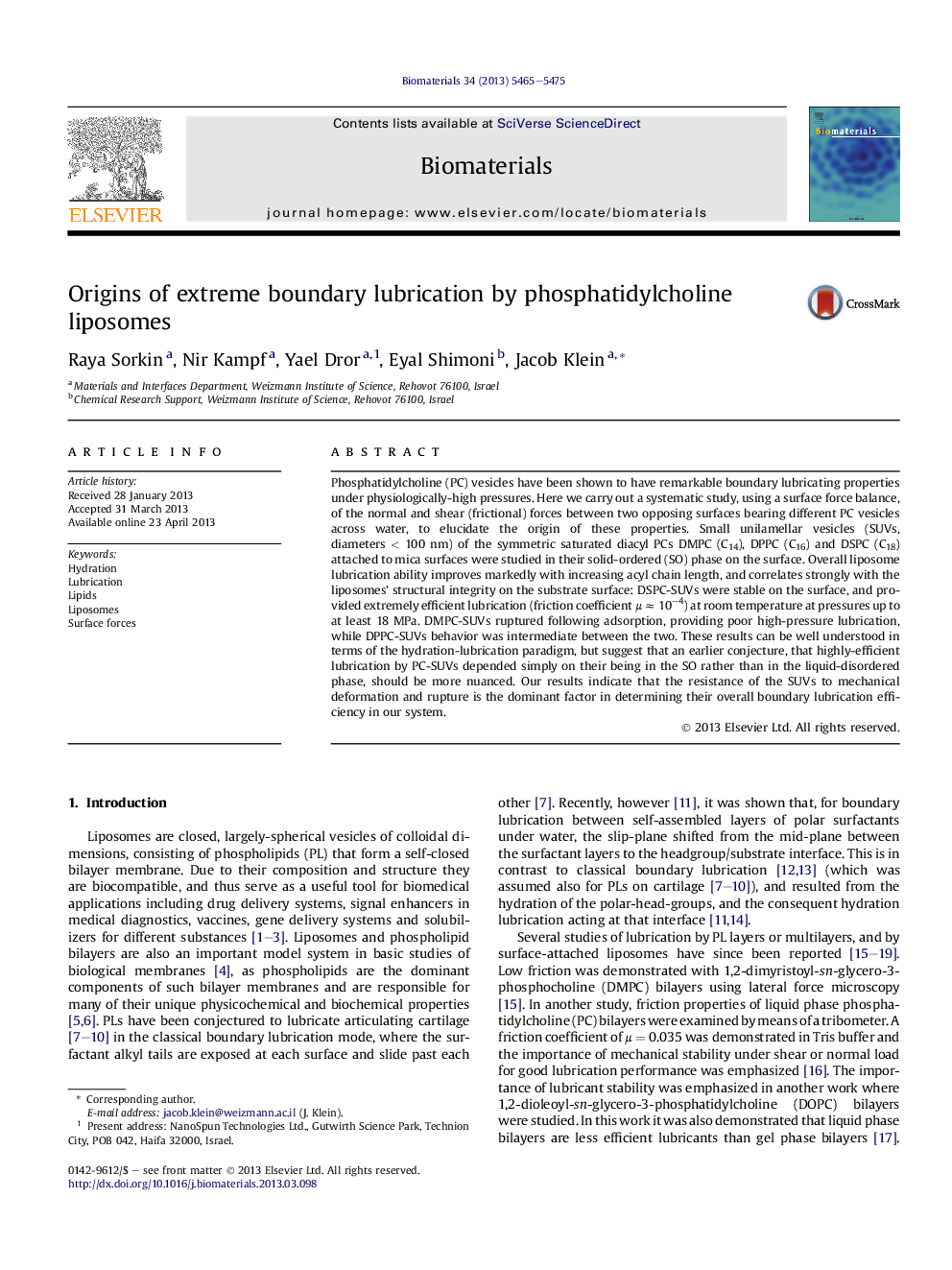| کد مقاله | کد نشریه | سال انتشار | مقاله انگلیسی | نسخه تمام متن |
|---|---|---|---|---|
| 6346 | 485 | 2013 | 11 صفحه PDF | دانلود رایگان |

Phosphatidylcholine (PC) vesicles have been shown to have remarkable boundary lubricating properties under physiologically-high pressures. Here we carry out a systematic study, using a surface force balance, of the normal and shear (frictional) forces between two opposing surfaces bearing different PC vesicles across water, to elucidate the origin of these properties. Small unilamellar vesicles (SUVs, diameters < 100 nm) of the symmetric saturated diacyl PCs DMPC (C14), DPPC (C16) and DSPC (C18) attached to mica surfaces were studied in their solid-ordered (SO) phase on the surface. Overall liposome lubrication ability improves markedly with increasing acyl chain length, and correlates strongly with the liposomes' structural integrity on the substrate surface: DSPC-SUVs were stable on the surface, and provided extremely efficient lubrication (friction coefficient μ ≈ 10−4) at room temperature at pressures up to at least 18 MPa. DMPC-SUVs ruptured following adsorption, providing poor high-pressure lubrication, while DPPC-SUVs behavior was intermediate between the two. These results can be well understood in terms of the hydration-lubrication paradigm, but suggest that an earlier conjecture, that highly-efficient lubrication by PC-SUVs depended simply on their being in the SO rather than in the liquid-disordered phase, should be more nuanced. Our results indicate that the resistance of the SUVs to mechanical deformation and rupture is the dominant factor in determining their overall boundary lubrication efficiency in our system.
Journal: Biomaterials - Volume 34, Issue 22, July 2013, Pages 5465–5475